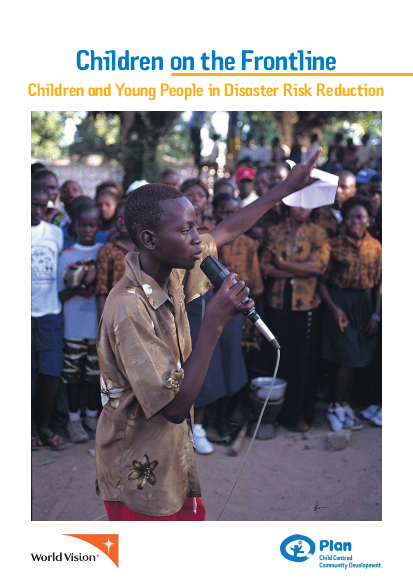
The experience of NGOs, including Plan International and World Vision International, confirms that children, who represent 50% of the world’s population, can and do play invaluable roles in planning and implementing disaster risk reduction (DRR) and climate change adaptation activities. In spite of this evidence, children are, by and large, excluded from the activities that contribute to building the resilience of their local communities. Children must be engaged as a vital part of the civil society mechanism that monitors HFA progress, which the Views from the Frontline survey has sought to establish. This report describes key findings from a global survey which was designed to validate this argument.
The survey asked children and young people, local government officials, civil society organisations (CSOs) and community representatives what they thought about the inclusion of marginalised groups such as children in the five DRR areas of action deemed essential by governments when they signed up to the Hyogo Framework for Action, and what impact this may have on the resilience of the community. The mixed-method survey determined to create a snapshot of the ‘state of affairs’ with regards to children’s resilience to disasters at the local level, setting a ground-breaking baseline against which future progress in implementing the HFA in this specific area could be measured.